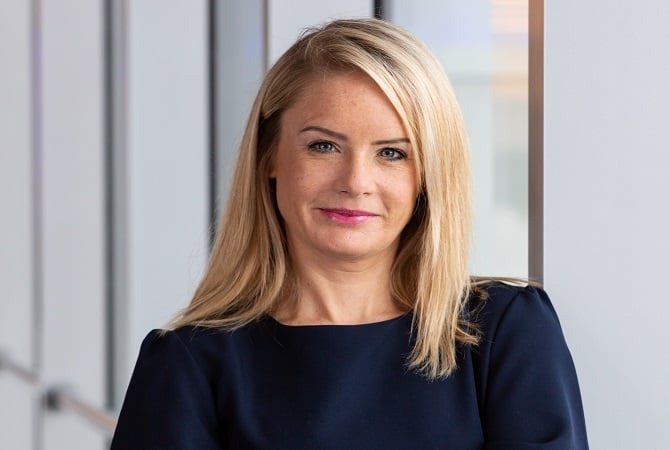Q&A with Louise Karim - an advocate for flexible work and returnships
We met with Louise Karim, Managing Director of Mums@Work, to talk about the increasing popularity of work flexibility in the Middle East
We met with Louise Karim, Managing Director of Mums@Work, to talk about the increasing popularity of work flexibility in the Middle East

CIPD: Flexible working has traditionally been associated with the needs of parents and care-takers, but increasingly, organisations are recognising its benefits for the entire workforce. In your experience, what are some of the benefits of offering flexible working jobs?
Louise Karim (LK): The most striking one is increased productivity. Employees that work flexible hours are eager to prove they can work effectively while not being permanently in the office, often so that they can keep that flexibility. Oftentimes, they actually work harder. A recent report in The National saw an 86% increase in productivity from companies that introduced flexible working. For employers, flexibility often means lower overhead costs as they need fewer desks and less office space.
Lastly, another important benefit is employee retention and talent attraction. Employees, who are offered flexibility in their professional life have a higher morale and a better work-life balance. According to a PwC global report, flexibility is ranked the number one driver when selecting a new role.
Until a few years ago, even internships were unheard of in the region. Last year, the UAE government approved flexible hours for Federal government employees… That’s quite a long way! Mums@Work was one of the first companies in the region to champion the concept of returnship and flexibility. What has been your journey like, and what changes have you seen in the way companies work?
LK: In the 3 years we have been in business, we have seen a positive shift in companies’ recognising the untapped female talent that is in the market. This being said there is still so much that can be done and I believe the biggest obstacle in our way is culture. Many people are still thinking that, if you are sat at your desk you’re not working or the belief that mothers cannot balance their careers and family or if you have taken time off to raise a family you have become redundant in your career. We brought the Returnship concept to the region in 2017, the program is dedicated to bringing women back to the workplace after a career break and allows them to flexibly re-enter the workplace. It provides women with the opportunity to get back on the career ladder after a break and offers the necessary support throughout the return transition. We have seen lots of interest in supporting this from Multinational companies and are hosting our 2nd dedicated Returnship career fair in March.
The biggest objection to flexible working is often the lack of control and visibility that employers have over employees who work flexibly. How can businesses overcome this challenge?
LK: Communication is key for flexible work, companies need to ensure teams are trained on how to work flexibility and ensure that managers and teams are able to connect when needed. Technology is also important to have in place, giving your team all the tools they need to effectively work flexibly.
What are the most common misconceptions you hear about flexibility?
LK: That it’s part-time or remote working. Flexibility can be created in many different ways, from flexibility around certain hours in the day, to working from home a day a week, to complete flexibility in how your team works, some companies even have an unlimited holiday policy – which is reported that people actually take less holiday!
You also work with candidates. How do you prepare them to get back to the workplace?
LK: We run lots of free events and workshops with qualified coaches and industry experts, anything from CV writing, to confidence building and digital events. We also have regular content on our website to support candidate’s job search and building their careers. Ahead of any interviews our team sits with each candidate to prepare them for the interview and answer any questions they may have.
Mums@Work focuses on, well, mums. Do you exclusively work with mothers, or with women more broadly? Do you see companies offering flexible working options for men as well?
LK: We support all women, though when we launched it was clear that flexibility was needed mostly by mothers. Over the years as flexibility has become more of a trend we hope to support all women in building careers that allow them to have balance in their lives and work with flexibility. Yes, I believe men should be offered flexibility also as whilst they may not have the same commitments as a mother, (though all dad’s would love to spend more time with their kids) flexibility allows all to have a better work life balance and to allow them to see their families more and have hobbies outside of work.
Meet Louise Karim and her team at the CIPD Middle East People Conference & Awards on 10-11 April 2019!
Are you a journalist looking for expert commentary and insights on the world of work?

18 Jun, 2024
A recap of our busiest Festival of Work to date
Championing better work and working lives
At the CIPD, we champion better work and working lives. We help organisations to thrive by focusing on their people, supporting economies and society for the future. We lead debate as the voice for everyone wanting a better world of work.